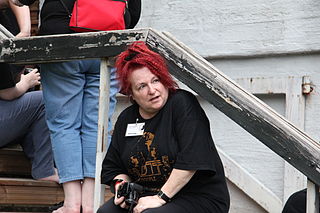A Quote by Jason Fried
When we launched the first version of Basecamp in 2004, we decided to build software for small companies just like us.
Related Quotes
In science, the whole system builds on people looking at other people's results and building on top of them. In witchcraft, somebody had a small secret and guarded it - but never allowed others to really understand it and build on it. Traditional software is like witchcraft. In history, witchcraft just died out. The same will happen in software. When problems get serious enough, you can't have one person or one company guarding their secrets. You have to have everybody share in the knowledge.
When we first started our internet company, 'China Pages', in 1995, and we were just making home pages for a lot of Chinese companies. We went to the big owners, the big companies, and they didn't want to do it. We go to state-owned companies, and they didn't want to do it. Only the small and medium companies really want to do it.
Oracle is my second job ever that did not involve waitressing. But I still have my waitress apron just in case this does not work out. It's just that I fell in love with software when I was programming in college. When I was an investment banker, there were mostly mainframe companies and very few software ones.
A long time ago, we had to build interfaces to connect with other companies, and I thought that was a great idea. The company had to pay a lot of money to build it and basically launched it, but our whole operating system almost broke. So, we couldn't continue it. In the end, I had to go on the train to Paris to explain that I had spent millions.
There are very few industries that I know of - I mean, there are companies in fashion, in cosmetics. They're developing AI models and training them in the cloud in the beginning. If they're successful, they build their own datacenters and develop the software in their own datacenter, like Uber does.


































